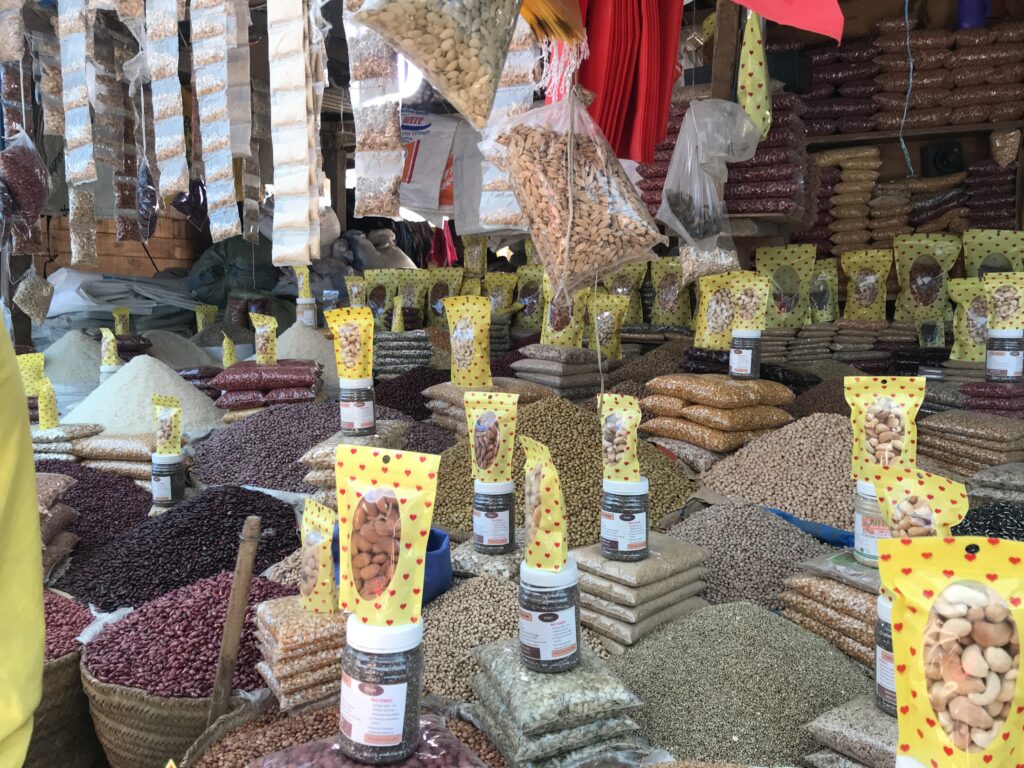Description of the programme/ objectives
Launched in December 2022, AfriFOODlinks is an EU-funded project that aims to improve food and nutrition security while delivering positive outcomes for climate and the environment and building social and ecological resilience in 65+ cities in Africa and Europe. Coordinated by ICLEI Africa, the project gathers 35 partners across the African and European continents and aims to improve food security and urban sustainability in African cities by:
- applying an urban food systems lens to promote shifts to healthy, sustainable diets;
- transforming urban food environments through real-world socio-technical experiments;
- promoting inclusive multi-actor governance to empower public officials, small businesses, and communities with ownership and agency to shape their food systems; and
- accelerating innovative, women- and youth-led agri-food businesses to support local value addition and inclusive economic participation.
From the project perspective, project cities are differentiated as hub cities, sharing cities, and networked cities. “Hub Cities” include: Cape Town, Tunis, Kisumu, Mbale, and Ouagadougou, and “Sharing Cities” include: Windhoek, Lusaka, Quelimane, Arusha, Antananarivo, Bukavu, Tamale, Dakar, Rabat, Niamey, Bruges, Montpellier, Barcelona, Vienna, and Milan.
The overall project is led by ICLEI Africa.
The African Centre for Cities (ACC), the University of Ghana (UG), and the Jaramogi Oginga Odinga University of Science and Technology (JOOUST) co-lead the Knowledge Generation Work Package of the project, which seeks to build, through multi-stakeholder collaboration, an action-oriented knowledge and evidence base needed for shaping and achieving resilient urban food systems in African cities.
For more information about the AfriFOODlinks project, such as its values framework, the Theory of Change, the methodological approaches, and so on, please visit https://afrifoodlinks.org/.
Description of the services provided/ main activities
The AfriFOODlinks project’s activities are phased over the research cycle of the project. The first phase is a high-level study examining the intersections between the urban system and the food system, but with due appreciation for how these two systems are embedded within governance, political, and cultural systems. Here, among others, we will work to assess and evaluate existing food-related governance (policies, processes, structures, and capacities) and the food system needs and dynamics in Arusha City, as well as assess the barriers to the development of profitable and sustainable small-scale and informal agri-food businesses in Arusha City and identify entry points to strengthen the small-scale circular entrepreneurial ecosystem.
In the second phase, deeper engagements in active site-specific research will be undertaken to expose, understand, and better engage each city’s food and urban system environments. Here, in collaboration with Arusha City officials who are involved in the AfriFOODlinks project and Rikolto, who is coordinating research activities in Arusha City, we will identify two (2) – three (3) food system-related case studies that could involve specific policy processes that are under way, a particular challenge that a city official needs more research into in order to address, or helping local government stakeholders document and write up lessons (for e.g., programmes, policies, projects, etc.), among other activities.
These two first phases will intersect with two active action processes, one to deepen knowledge and the other to actively stimulate, validate, and amplify African urban, food system, and wider urban food knowledge.
The last phase forms part of the knowledge generation process of the project and is intended to support the sharing of urban food system-related information, perspectives, challenges, opportunities, and possible pathways going forward. Specifically, this phase will intend to ensure active but co-produced knowledge at the policy scale, supporting policy processes, and ultimately de-scaling food to the urban governance scale.

